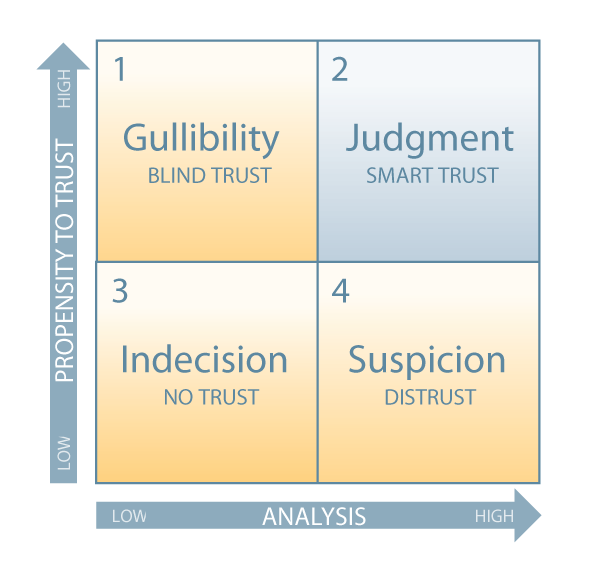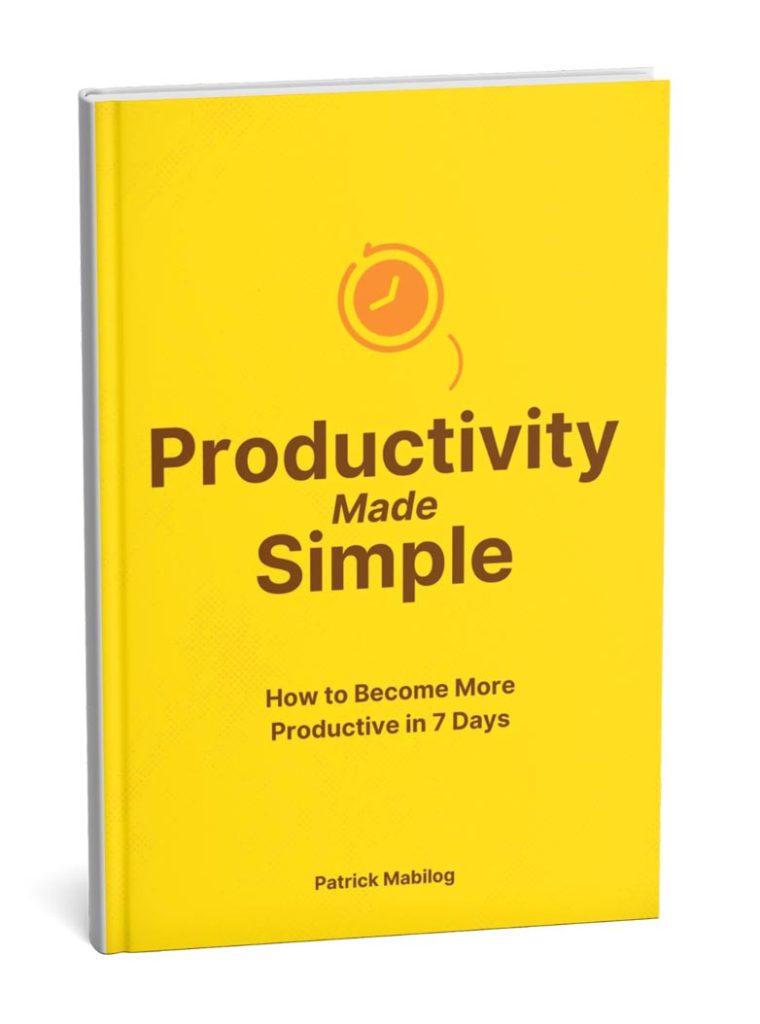Most people have problems with trust on two varying levels. Some are mistrusting and have the tendency to close doors to people, opportunities, and possibilities. Others are too trusting to the point that people take advantage of them. Looking at the trust vs gullibility discussion, we see-saw back and forth this never-ending charade of gullibility and mistrust.
Many people might think there is no better way. There is.
I’ve been reading through “The Speed of Trust” by Stephen M.R. Covey, the son and successor of renowned management and work success guru Dr. Stephen R. Covey. The book talks about the importance of having trust in an organization by attributing the company’s 200% increase in sales performance to one commitment– creating unconditional trust.
But trust doesn’t necessarily mean throwing all analysis out the window in the guise of company camaraderie. In fact, analysis should build trust. His model shows that analysis can help build smart trust, which is a more sustainable and effective means of trust.

How does one then build smart trust? Here are three quick practices to help you create trust without being gullible.
1. Trust in phases
There is so much wisdom to the pattern of trust God uses with us. Jesus said in Luke 16:10, “If you are faithful in little things, you will be faithful in large ones. But if you are dishonest in little things, you won’t be honest with greater responsibilities.”
I have no doubt that trusting people is important, but we also need to be wise in terms of what we entrust to them. This applies to both personal and professional relationships. In dating and courtship, for instance, there needs to be enough trust to explore the chances of romance in pursuit of marriage, but we don’t put ourself out there all together. In the same way, with professional relationships, we usually entrust responsibilities to a new hire in bits and phases.
2. Be vulnerable
Patrick Lencioni’s model for vulnerability-based trust has been life-altering for me. The management consultant and expert shares that trust in an organization- and in any relationship really- starts with a leader or initiator showing the willingness, to be honest, authentic, and vulnerable.
We think that sharing our weakness might bring distrust, but it’s actually the opposite. When we’re honest with our vulnerabilities, and ask for people’s help in those areas, it creates a sense of mutual trust and strengthens the bond of relationship.
3. Understand a person’s strengths and gifts
Would you trust a doctor to design a house for you, or would you trust an architect to perform surgery on you? (Unless they’re bi-practiced people of course, but let’s pretend they aren’t). Definitely not. Is it because they’re bad professionals? No. It’s just that those aren’t their natural skills and giftings.
When trusting people, it helps to know what you can entrust to them? That’s why I’m such a big fan of strengths and personality tests because they are great ways to measure how much we can trust a person. When we’re building teams, for example, we must know what strengths our subordinates have and entrust tasks that align with those strengths.
The saying goes that if you measure a fish’s intelligence by its ability to climb a tree, it will grow up thinking it’s an idiot. Likewise, entrusting responsibilities to people that aren’t their natural giftings is an unfair measure of whether they deserve trust or not.
The Secret to Smart Trust: Intentionality
At the heart of smart trust is being deliberate and planning out your trust systems. If someone fails you, do you have a back up? How much will it cost you? What will you achieve if the person you trust succeeds? Ask the right questions and map out every scenario possible.
Trust vs gullibility depends on whether we are intentional in how we allocate trust to people in our life. Be calculated about how you give out trust, and no one will ever take you for granted.





